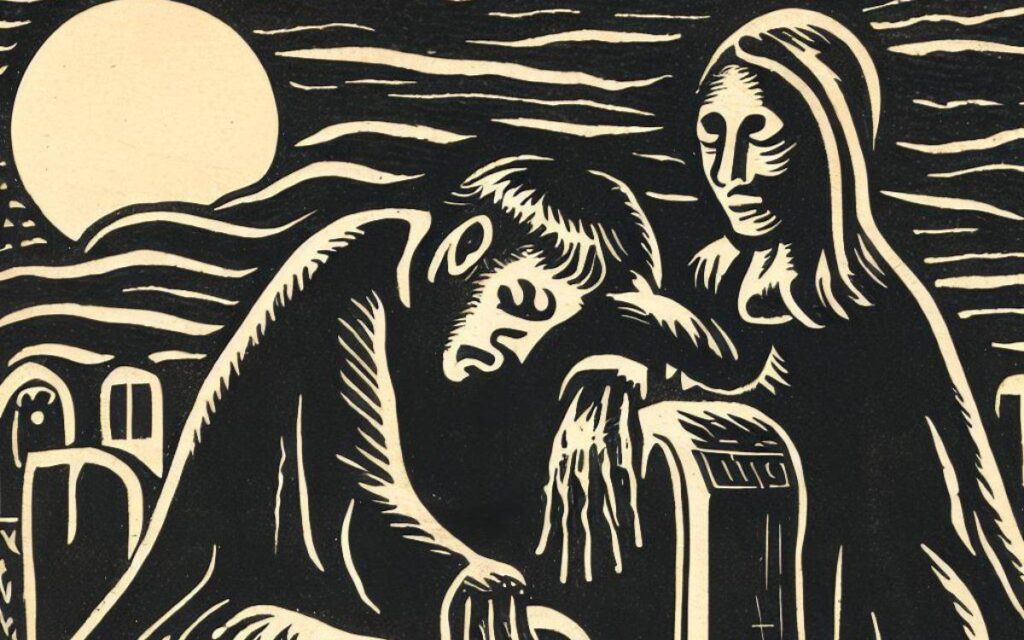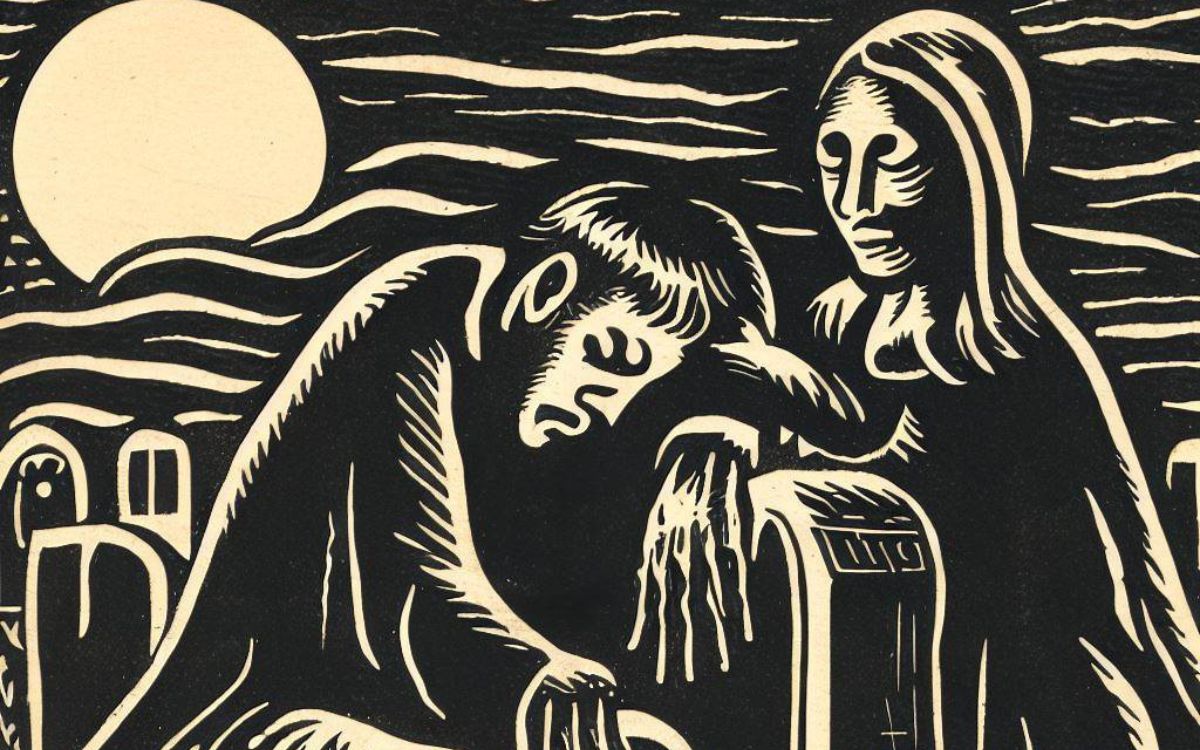The Unquiet Grave is a haunting folk ballad exploring the chilling consequences of grief that clings too tightly to the dead

Among the many ballads of British and Irish tradition, The Unquiet Grave stands out not for violence or vengeance, but for a quieter kind of horror — the sorrow that refuses to die.
It is a ghost story told in whispers, wrapped in grief and cold winds. First collected in 1868 by Francis James Child as Ballad 78, its origins almost certainly lie centuries earlier.
Where many folk songs rush into murder or betrayal, this one lingers at the graveside — and stays there.
The Unquiet Grave, a mournful haunting
The story is deceptively simple: a young man mourns the death of his lover for “a 12-month and a day”.
His sorrow is so deep, so relentless, that it disturbs her rest in the grave. She rises — not out of malice, but because she cannot sleep in peace while his grief binds her to the world.
What follows is no joyous reunion. He begs a kiss, yearning for one last taste of love, but she warns him that the kiss would bring death.
Still, he persists. She refuses again, this time more bluntly — in death, their hearts will rot in the earth. No kiss can change that.
There is no comfort in her return. Only a cold truth: the dead should be left to lie, and the living must learn to let go.
Echoes in the Dark
The Unquiet Grave might be unique in tone, but it shares kinship with a whole family of eerie ballads from these isles.
Songs like Sweet William’s Ghost, where a dead lover returns to speak with the living, or The Wife of Usher’s Well, in which a woman’s three sons return from the grave one last time — beautiful and silent, with birch branches on their hats. They too vanish by morning.
There is also The Twa Sisters, where one sister murders the other out of jealousy, and the victim’s body is turned into a harp that sings the truth of her death.
That is a grislier tale, certainly, but it shares the idea that the dead do not always stay silent — and sometimes, they sing.
In comparison, The Unquiet Grave is subtler. There is no violence, no crime to confess. But it is just as unsettling.
Here, the horror is not what has been done, but what will not stop — mourning so strong it binds the dead to the earth.
A tune through time
The melody often used for The Unquiet Grave is also shared with Dives and Lazarus and Star of the County Down. It is slow and wistful, as if the tune itself is reluctant to move on.
That adds to the atmosphere — no dramatic flourishes, just the steady weight of sorrow.
Ralph Vaughan Williams’s 1912 arrangement captures this perfectly: violin, piano and voice weaving something both fragile and ghostly.
Over the last century, everyone from Joan Baez to Kate Rusby to Ween has kept the song alive, reinterpreting it through different musical lenses.
Gothic rock, dark folk, electronica — all have found a home for this old ghost.
Many have speculated that the song’s roots stretch far beyond the Christian era.
The idea that excessive grief disturbs the dead appears in Scandinavian and German ballads, and even in Roman traditions.
Mourning, in those stories, becomes a tether — something that pulls the dead back into a world where they no longer belong.
Ruth Harvey, writing in 1941, noted how these stories may once have been warnings: do not grieve too long, or you will keep the soul from peace.
It is a haunting idea — that even love can become a burden to the dead.
Not all ghosts are malevolent
What makes The Unquiet Grave so affecting is its restraint.
This is not a ghost seeking revenge, or a murder crying out for justice. It is something far more human — a moment between two people torn apart by death, both still trying to hold on.
But in the end, it leaves us with a sombre lesson: however strong our love may be, the dead must go where the living cannot follow. Not yet.
For those drawn to the darker corners of folk tradition, The Unquiet Grave is essential listening — not loud, not bloody, but quietly chilling.
A song that speaks from beyond the veil, and asks only that we let go.
The Unquiet Grave lyrics
The wind doth blow today, my love,
And a few small drops of rain;
I never had but one true-love,
In cold grave she was lain.
I’ll do as much for my true-love
As any young man may;
I’ll sit and mourn all at her grave
For a twelvemonth and a day.”
The twelvemonth and a day being up,
The dead began to speak:
“Oh who sits weeping on my grave,
And will not let me sleep?”
’T is I, my love, sits on your grave,
And will not let you sleep;
For I crave one kiss of your clay-cold lips,
And that is all I seek.
You crave one kiss of my clay-cold lips,
But my breath smells earthy strong;
If you have one kiss of my clay-cold lips,
Your time will not be long.
’T is down in yonder garden green,
Love, where we used to walk,
The finest flower that e’re was seen
Is withered to a stalk.
The stalk is withered dry, my love,
So will our hearts decay;
So make yourself content, my love,
Till God calls you away.
Tell us your thoughts on The Unquiet Grave in the comments section below!



